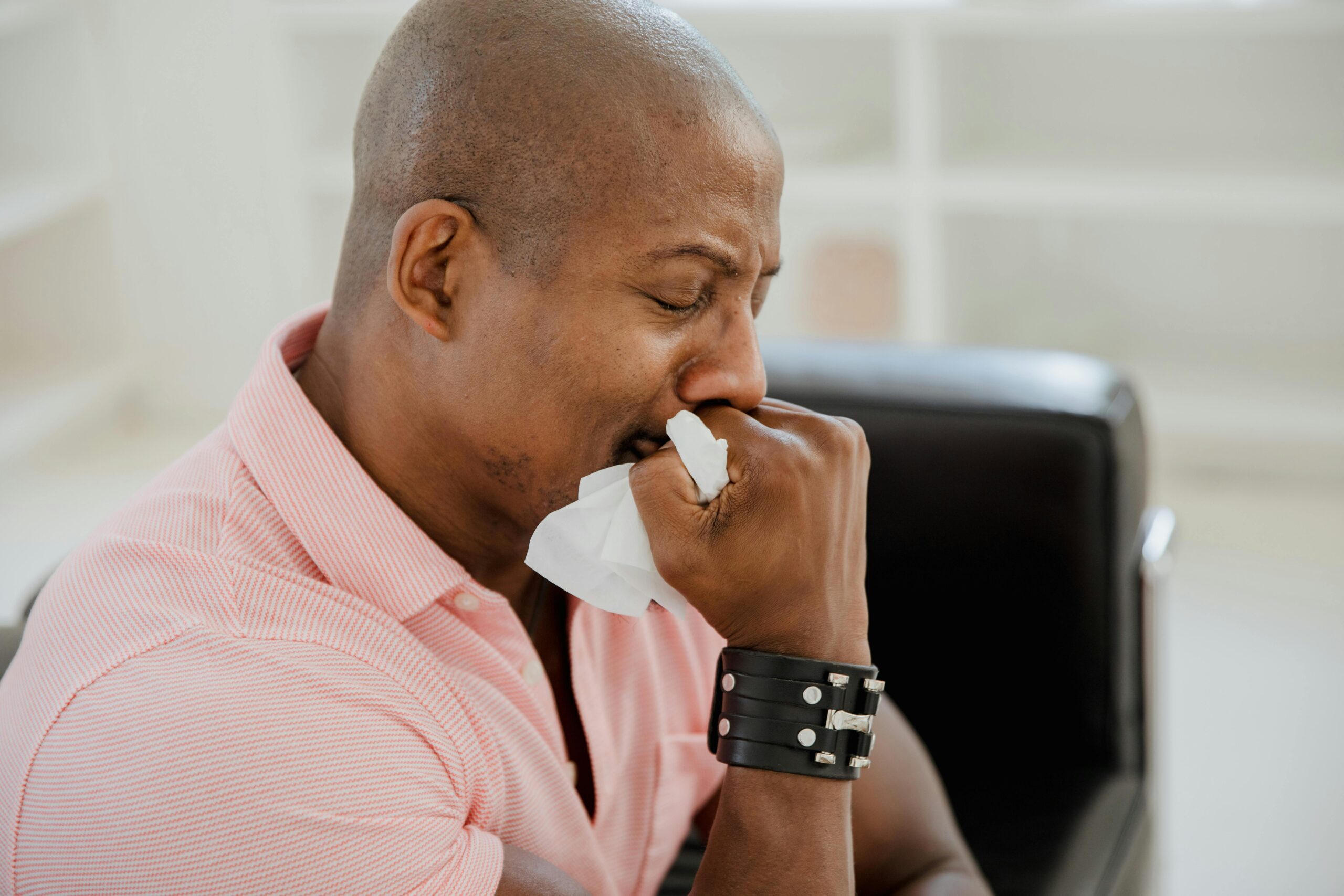Let me tell you about my friend John—a guy whose story made me rethink how stress shows up in our bodies long before it shows on our faces.
John is a dedicated construction worker. On one project, the pressure was on—tight deadlines, heavy lifting, and long hours under the sun. Determined to impress, he skipped breaks, pushed harder than usual, and ignored the soreness creeping into his back.
Then one day, everything changed.
While lifting a particularly awkward piece of lumber, he felt a sharp pain and collapsed. He couldn’t move. At the hospital, doctors told him he had a herniated disc—a serious spinal injury requiring surgery and months of therapy.
What caused it? Stress. Not the kind you cry over, but the kind that builds up quietly in your muscles, joints, and bones—until something gives.
So, What Is Stress—Really?
At its core, stress is your body’s alarm system. It’s what kicks in when you’re faced with danger, pressure, or even a tight deadline.
Your brain sends out signals that release hormones like adrenaline and cortisol, launching the classic “fight or flight” mode.
You may feel:
• Heart racing
• Muscles tensing
• Breathing faster
• Focus sharpening
This response helps in short bursts. But when your body is always on high alert, it begins to wear out your nervous system, heart, and immune response.
⸻
The Two Faces of Physical Stress
When it comes to your physical health, stress can fall into two major categories:
1. Acute Physical Stress
This is the stress that hits suddenly and intensely—like an emergency.
Examples:
• Slipping on ice and spraining your ankle
• Lifting something heavy the wrong way
• Surgery
• Exposure to extreme weather
• Physical accidents
Acute stress forces your body to react quickly. But if your baseline health is already poor, the recovery process can be long and difficult.
2. Chronic Physical Stress
This is the slow, creeping kind. You may not even notice it at first.
Common sources:
• Desk jobs with poor posture
• Repetitive tasks like typing or lifting
• Insomnia or poor-quality sleep
• Nutrient-deficient diets
• Environmental toxins or poor air quality
• Emotional burdens that convert into physical strain
⸻
Red Flags You’re Under Physical Stress
Your body whispers before it screams. These signs are your early warning system:
• Chronic fatigue
• Frequent headaches
• Unexplained muscle pain
• Trouble sleeping
• Digestive issues (bloating, constipation)
• Getting sick often
• High blood pressure
• Foggy memory or poor concentration
The earlier you catch the signs, the easier it is to take corrective action.
⸻
Stress and the Immune System: A Hidden Connection
Short-term stress can sometimes boost your immune response—but chronic stress has the opposite effect.
Long-term stress can:
• Lower white blood cell count
• Slow wound healing
• Increase susceptibility to colds and viruses
• Promote chronic inflammation
• Upset the gut, affecting immunity and nutrient absorption
This immune dysfunction makes you vulnerable not just to infections but to long-term diseases as well.
⸻
The Vicious Cycle: Stress, Pain & Burnout
Physical stress causes pain. Pain leads to poor sleep. Poor sleep worsens inflammation. And inflammation triggers more stress.
It’s a cycle.
Eventually, burnout creeps in. And burnout isn’t just emotional—it’s cellular. It affects everything from your energy levels to your hormones.
⸻
How to Manage Physical Stress Before It Manages You
No need for dramatic changes—just consistent, simple habits.
⸻
1. Relax Your Body & Mind
Try these proven techniques:
• Breathing: 4-7-8 technique
• Progressive Muscle Relaxation
• Mindfulness & Meditation (apps like Calm or Insight Timer)
• Gentle Yoga Poses like child’s pose, spinal twist, and forward folds
Pro Tip: Do one of these before bedtime to improve sleep quality.
⸻
2. Move, But Don’t Overdo It
Your body craves movement—but not punishment.
Try:
• Brisk walking in fresh air
• Swimming or aqua therapy
• Strength training with rest intervals
• Light dancing
• Gentle yoga or tai chi
Ask yourself: “Do I feel better after this activity?” If not, scale back.
⸻
3. Eat & Sleep Like Your Health Depends On It
Because it does.
Smart Eating Tips:
• Eat colorful vegetables daily
• Include protein at every meal
• Drink water often
• Avoid sugar crashes by limiting soda, candy, and fast food
Sleep Hygiene Tips:
• Go to bed around the same time each night
• Avoid screens 1 hour before bed
• Try magnesium or chamomile tea
• Keep your room cool and dark
⸻
4. Build a Support System
Stress shrinks when it’s shared.
• Call a friend and vent
• Talk to a therapist if stress is chronic
• Join a support group for your situation (chronic pain, burnout, grief, etc.)
• Lean on your partner, community, or spiritual group
Social connection reduces cortisol. You don’t have to “tough it out” alone.
⸻
BONUS: Daily Stress-Less Routine (15–30 minutes)
Morning
• Stretch in bed for 2 minutes
• 5 minutes deep breathing or gratitude journaling
• Eat a nourishing breakfast
Midday
• Take a 10-minute walk outside
• Drink water and eat a protein-rich snack
Evening
• Turn off screens 30–60 minutes before bed
• Do 5 minutes of breathing or meditation
• Reflect on what went well during your day
These micro-habits add up.
Stress Myths vs. Facts
| Myth | Truth |
| “Stress is just in your head” | Stress affects your heart, immune system, muscles, and brain. |
| “If I ignore it, it’ll go away” | Unchecked stress compounds over time. |
| “Only weak people get overwhelmed” | Stress impacts everyone—recognizing it is strength, not weakness. |
| “I just need a vacation” | Temporary breaks help, but daily habits are the real solution. |
🎯 Final Thoughts: Listen to Your Body Before It Breaks Down
John didn’t ignore the signs because he was careless. He ignored them because society taught him to equate rest with weakness.
But real strength is balance. Knowing when to act, and when to pause.
Stress isn’t always dramatic. Sometimes it’s quiet—like tension in your shoulders, or waking up more tired than you went to bed.
Don’t wait for a breakdown to take a break.
⸻
Simple Daily Reminders
• Take breaks—tiny ones count
• Sleep 7–9 hours
• Stretch and breathe
• Eat real food
• Move your body in ways that feel good
• Put the phone down for 20 minutes
• Talk to someone—always
⸻
Your Well-Being Is Worth It
You have one heart. One spine. One nervous system. You’re not a machine—you’re a living being.
Treat your body like you’d treat someone you love. Gently. Kindly. With care.
Because when you honor your body, your life changes. And stress? It starts to lose its grip.


